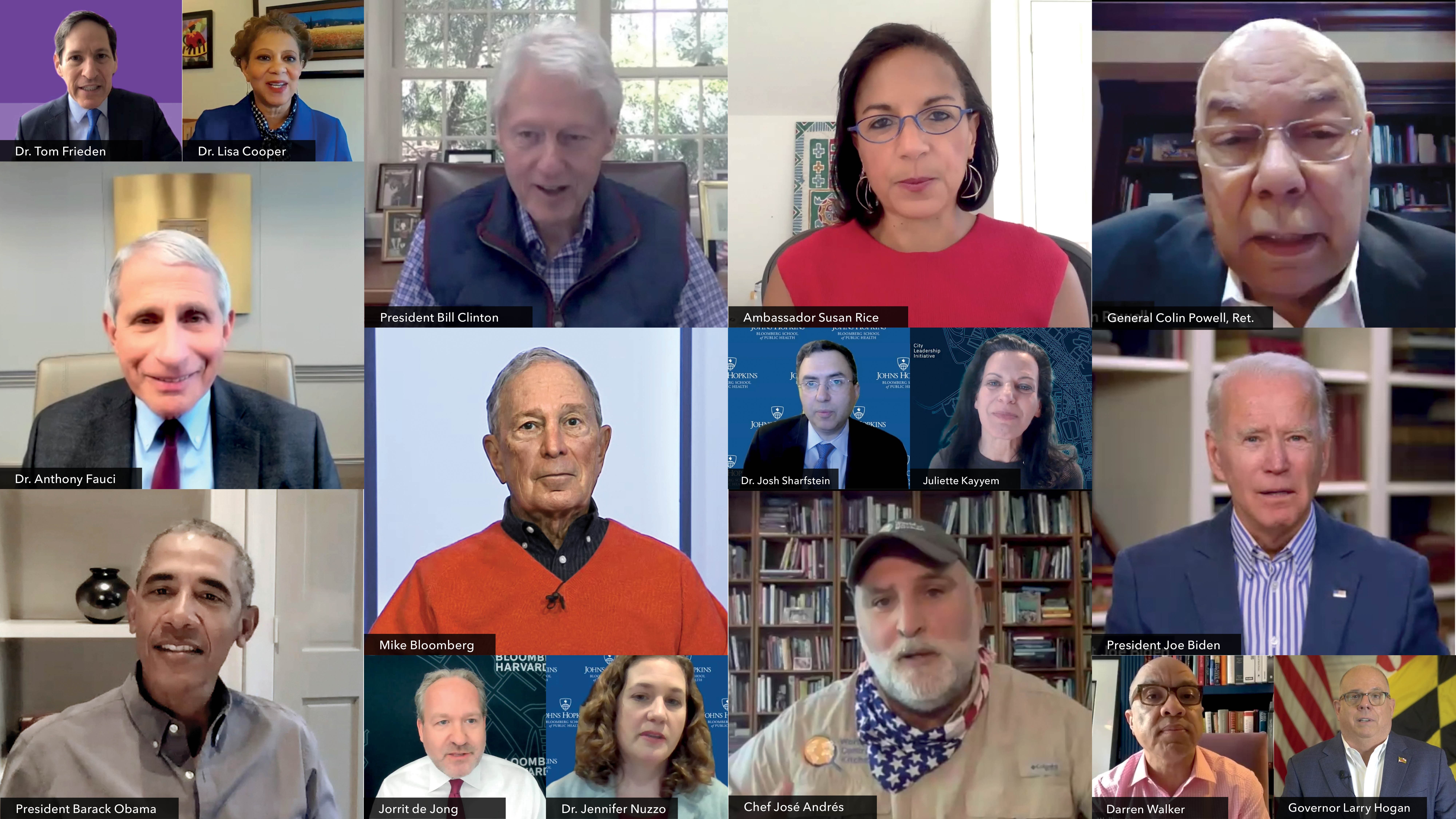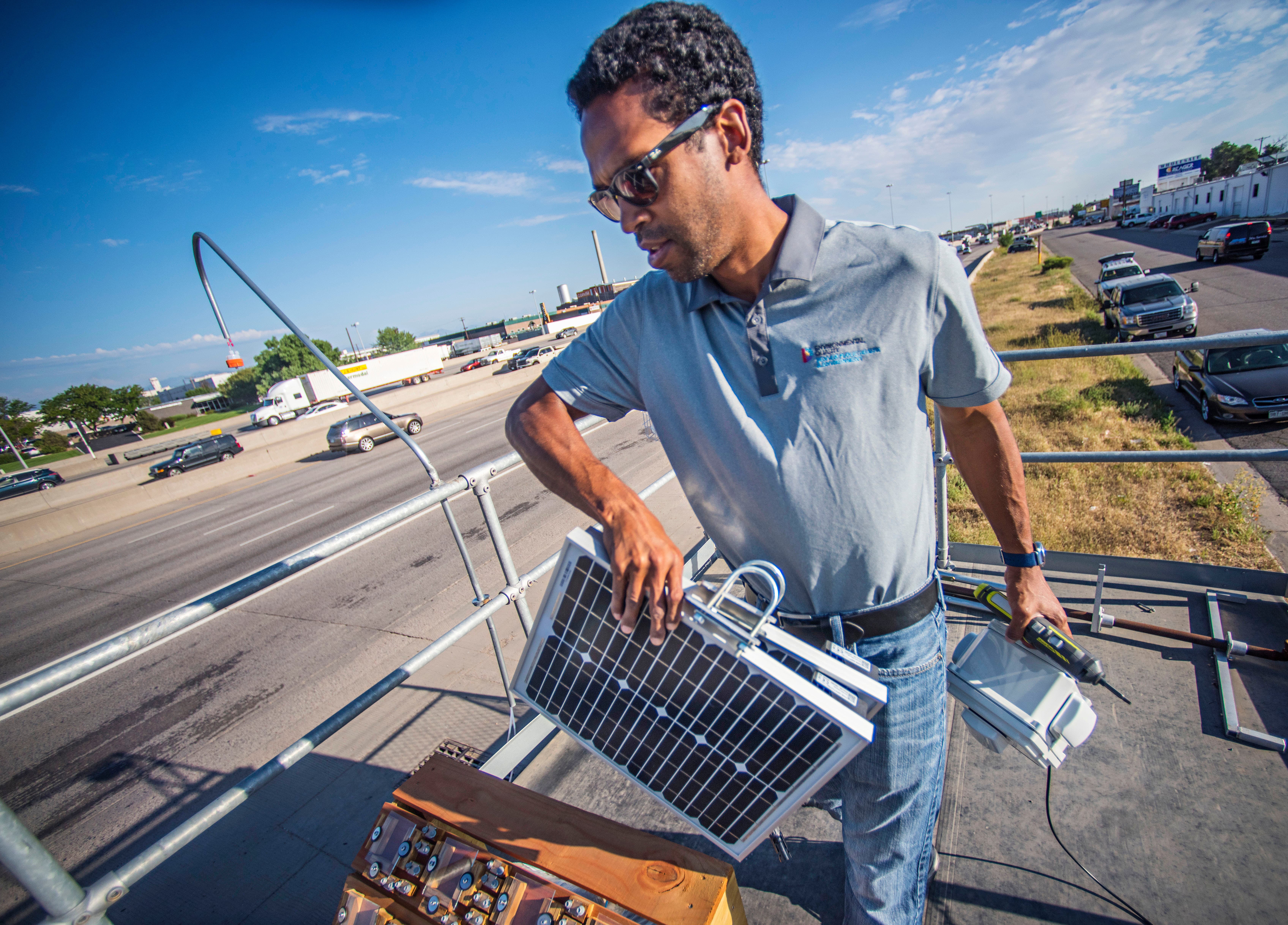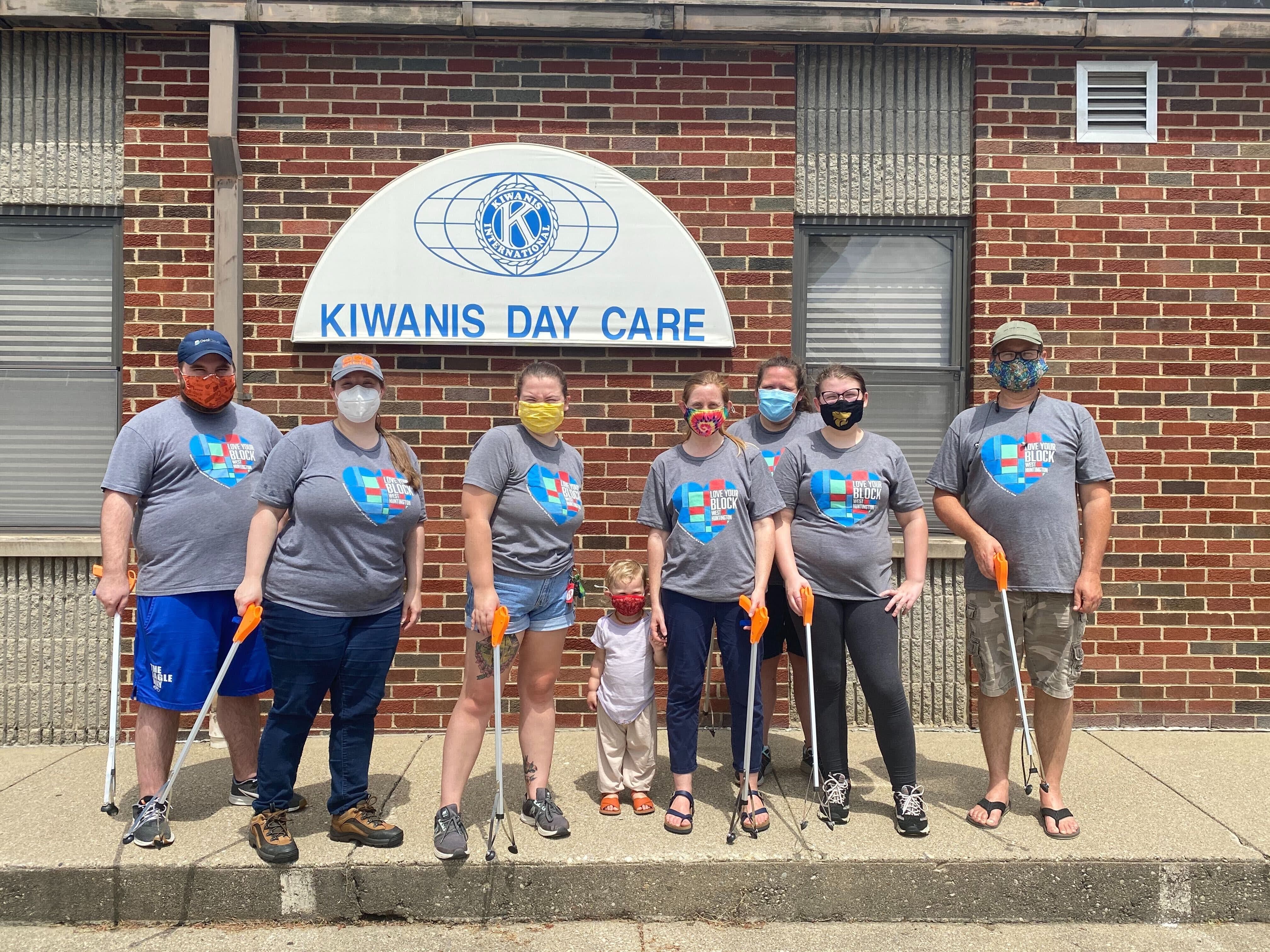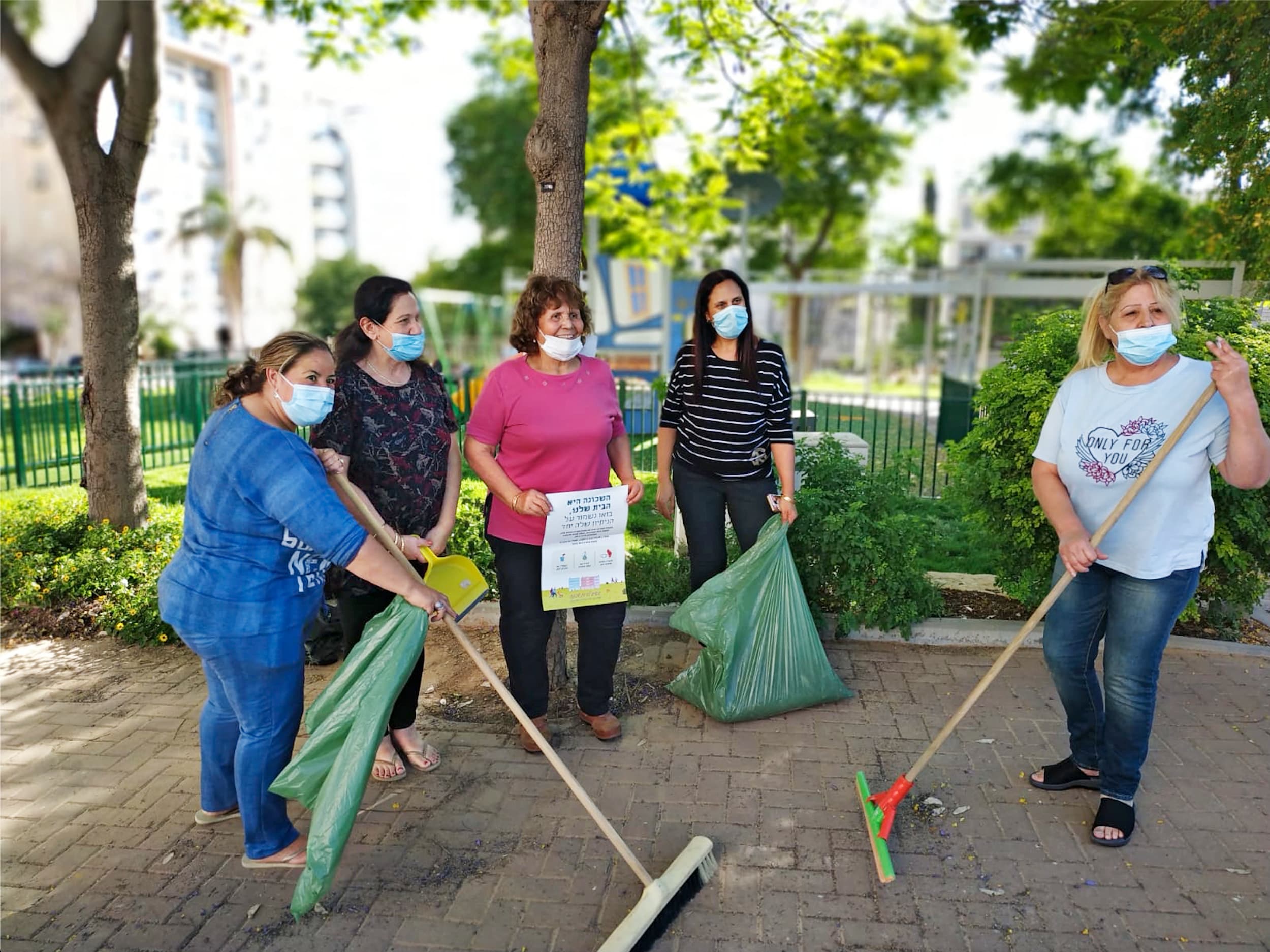Improving the Way City Governments Work
Government Innovation
“When we all look back at this moment in American history, I do believe the mayors, who are on the front lines, are going to be instrumental in helping us recover.”
George W. Bush
43rd President
United States of America
A signature program of Bloomberg Philanthropies is the Bloomberg Harvard City Leadership Initiative, which provides mayors around the world with the resources and expertise they need to grow as leaders and to solve their cities’ biggest problems. Through partnerships with the Harvard Business School and the Harvard Kennedy School of Government, this yearlong program for mayors and their senior teams includes in-person and virtual training; in-city support, including from graduate student fellows; executive education scholarships; and access to the latest research and cutting-edge strategies. The current 2020–2021 class of the Bloomberg Harvard City Leadership Initiative is virtually receiving the same hands-on support and access to resources as past classes, with special attention paid to responding to the COVID-19 pandemic. These mayors also participate in Bloomberg Philanthropies’ COVID-19 Local Response Initiative convenings, which are open to a wider group of mayors from around the world.
The COVID-19 Local Response Initiative has equipped city leaders around the world with timely and accurate public health information, delivered crisis communications and leadership training, and provided ongoing guidance, online tools, and technical assistance on a range of specific challenges, from encouraging social distancing and other behaviors to reduce the spread of the virus to implementing programs to bolster local businesses to navigating federal funding streams and maximizing reimbursements. Bloomberg Philanthropies partnered with the Bloomberg Harvard City Leadership Initiative, the Johns Hopkins Bloomberg School of Public Health, and other leading organizations to provide these resources. In addition, Bloomberg Associates’ experts have been instrumental in supporting cities’ responses to residents’ needs.
“This initiative armed me with tools that were crucial for leading my city through the COVID-19 crisis.”
Kathy Sheehan
Mayor
Albany, New York
The COVID-19 pandemic has highlighted the need for cities to address deep-seated challenges with innovative solutions. Bloomberg Philanthropies’ Mayors Challenge is a competition designed to spark innovative, replicable ideas for improving cities and the lives of people living in them.
More than 1,000 new ideas generated across the past four Mayors Challenge competitions
More than 100 cities are implementing winning ideas from the first four challenges, which were held in the United States (2013), Europe (2014), Latin America and the Caribbean (2016), and in the United States again (2018). The competition supports a cohort of selected “champion cities” with funding and guidance to develop and test local responses to challenges around climate change, health, and other critical issues. A handful of cities are then selected from this pool of “champion cities,” receiving $1 to $5 million to implement their bold solutions.
For example, Huntington, West Virginia, a 2018 winner, is supporting first responders on the front lines of the opioid crisis by embedding mental health care professionals within emergency response departments, ensuring that first responders are provided with mental health support so that they are able to give the best care possible to opioid users.
The pandemic has forced cities to try new things and innovate at rapid speed in order to survive. To help elevate — and replicate — the best ideas emerging from the COVID-19 crisis, Bloomberg Philanthropies launched its first Global Mayors Challenge in early 2021, open to cities around the world with populations greater than 100,000.
Launched in 2015, the What Works Cities program provides cities with robust technical support, access to expertise, and peer-to-peer learning to help local leaders use data to more effectively engage the public, fund and improve services, and evaluate progress. The program also runs a certification effort that measures the extent to which cities have the right people, policies, and practices in place to use data for decision-making, and inspires many more cities to improve their practices. What Works Cities is run in collaboration with four partners: Results for America, The Behavioural Insights Team, Harvard Kennedy School’s Government Performance Lab, and Johns Hopkins University’s Center for Government Excellence.
Trained 10,000+ civil servants since 2018 to better use data to improve city services
During the pandemic, Bloomberg Philanthropies worked with the Johns Hopkins Bloomberg School of Public Health to develop a set of COVID-19 management metrics to help mayors decide which business and public spaces could remain open and make other key decisions. What Works Cities partners also worked with 11 cities to test their messaging on critical public health information and increase adoption of public health guidelines. In Paterson, New Jersey, using skills and expertise gained from the program, Mayor André Sayegh asked the city’s first-ever Chief Data Officer to identify which neighborhoods would struggle to access food. Now, the city and its partners are using this information to deliver targeted support to more than 11,000 families since the start of the pandemic.
Strengthening Economic Mobility
Bloomberg Philanthropies’ What Works Cities program has partnered with the Bill & Melinda Gates Foundation and Ballmer Group to help nine cities test new ways to improve economic opportunity by using data to tackle systemic barriers. For example, the program is helping Lansing, Michigan, Mayor Andy Schor bring together previously disconnected educational and financial aid resources to help residents better plan and pay for college.
In 2009, Mike Bloomberg and 16 mayors from around the country founded Cities of Service, a coalition of cities dedicated to finding new ways to engage their residents in crucial volunteer work. Today, this network of more than 280 cities across the Americas and Europe helps mayors build stronger cities by changing the way local government and citizens work together. In 2020, Cities of Service found a new home at Johns Hopkins University.
This network of cities helped engage local communities across the United States in COVID-19 response efforts. Through the program Love Your Block, cities distributed targeted grants of a few hundred dollars to support residents’ efforts to help their neighbors. For example, in Lancaster, Pennsylvania, grants supported the distribution of personal protective equipment to elderly homebound residents and crafts projects for kids stuck at home. In South Bend, Indiana, grants supported community gardens and assistance for elderly residents. And in Milwaukee, Wisconsin, support went to buy material to sew masks, arts kits, and books to help people cope with quarantine.
Inspired by the Bloomberg administration’s success in creating cross-departmental solutions to tackle challenges in New York City, Bloomberg Philanthropies has led a movement to help other cities develop the skills needed for innovative problem-solving. In 2012, the foundation began funding innovation teams — or “i-teams” — in city halls around the world. These i-teams, which are composed of highly skilled individuals with expertise in topics like data analysis, design, and project management, help mayors work across sectors and silos and with residents to creatively tackle top priorities. When that work began, just five U.S. cities had Chief Innovation Officers. Now, more than 80 U.S. cities have adopted the position. Bloomberg Philanthropies has supported i-teams staff in 39 cities across four countries working on solutions to improve city services, reduce crime, redesign public spaces, and other top priorities for mayors.
Supported i-teams staff in 39 cities across 4 countries
The i-teams’ creative approach proved to be critical as the pandemic forced cities to reimagine how to safely deliver services to residents and address emerging challenges. Several cities relied on i-teams to launch entirely new programs, such as the Baltimore Health Corps, a public-private partnership that trained hundreds of unemployed residents to support contact tracing efforts, conduct public education outreach, and coordinate care for older adults, the uninsured, and other vulnerable residents.
Top photo: Bloomberg Harvard City Leadership Initiative hosting its first COVID-19 Local Response Initiative session in March 2020. Credit: Bloomberg Harvard City Leadership Initiative



